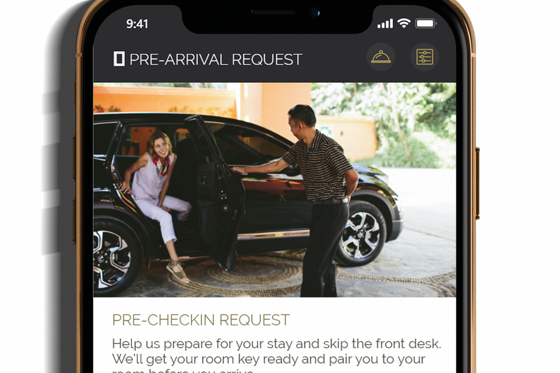COVID has only upped the ante for hotel applications as contact concerns have accelerated development of service at a distance.
“At warp speed, the hospitality industry was left with little choice but to be drawn into a mobile-driven contactless culture,” said longtime hotel executive Terence Ronson, who runs IT consultancy firm Pertlink in Manila.
But, many hotels have been slow to embrace applications because of a traditional emphasis on personal service. “The pandemic has forced minds to change,” Ronson added. “And it has been seismic.”
Contributed by Ron Gluckman
The shift is sensible, even without the current emphasis on safety, said Luke Doherty, head of technology for Bangkok-based Six Senses Hotels Resorts Spas, which launched its new app in mid-December. “So much of what we do is on this small square of glass we all have,” he said. “It just makes sense to be there.”
Making the leap requires coordinating content with functionality. Most hotel companies use an independent technology firm for development. Six Senses worked with one firm in Bangkok on a project that took over a year. What began as a tech initiative became a team effort that involved dozens of staff.
Six Senses is renowned for high-end properties in exotic locations, from the Maldives to Bhutan, and bold initiatives on sustainability and environmental sensitivity. Doherty described a lot of feedback from the task force to not only get the app services working, but to make it fit the brand ethos.
Besides pairing rooms to offer keyless access and in-room control where possible, features include the ability to interact with staff, book meals and excursions, plus destination information handy in holiday planning.
And the quirky appeal of Six Senses shines in activities like “Hole in One.” This Bali golf package offers the thrill of pounding a packet of golf balls into the Indian ocean – with zero guilt. The balls are biodegradable and filled with fish food.
Doherty said a natural appeal to applications from the business side is enhancing efficiency and improving revenue, but they also offer opportunities to better engage with guests even before they arrive.
Driven by data
Bangkok-based Minor Hotels took a data-driven approach to its recent development of apps for its Anantara and NH properties. Development was done in-house, said Marcos Cadena, vice president for digital marketing. COVID proved a catalyst, especially with the Anantara application, which was launched in November.

After borders closed, Anantara wound up with a new business and revenue stream, with many of its Thailand properties certified for as alternative quarantine sites. “We had so many questions from people coming to Thailand,” Cadena explained. “They wanted to know how it worked, about meal service, and how to hire a PlayStation.”
One initial aim was to speed responses, using a digital dashboard that integrated customer queries, along with message services WeChat, Line and WhatsApp. The app clusters them together and dispatches them to relevant departments.
Anantara built booking engines not only for its hotels, but for everything from food and beverage to spas, with detailed option menus. “This was real important in this COVID time,” Cadena said, noting hotels have cut staff. “So, it’s important to automate systems, but still make the customer feel important.”
The app rolled out in the Maldives, which reopened to tourism earlier than much of the world.
Customization matters
Many chains introduce applications incrementally, since they often need to be customized extensively for different properties – one reason big hotel groups often are behind the curve of this tech.
“It’s hard to develop a global platform,” said Ronson, noting that costs can be enormous for chains with hundreds of hotels.
Then there are data privacy concerns that multiple exponentially across different jurisdictions. “Smaller hotels often can better implement,” Ronson added.
Customer response also helps drive customization. Minor’s NH app shows room layouts, offering customer choice of rooms, even beds – a rarity in hotel apps because of the time required for coding. Anantara’s app showcases restaurant menus and wine lists. You can’t select specific tables, but Cadena’s team added a button allowing guests to make requests.
Virgin Hotels launched in 2015 emphasizing in-room tech, and a mobile app called Lucy that was like an in-room Siri. Lucy was overhauled in 2020, adding more contactless features, including keyless access. Through the app, guests can control the TV and room temperature, order room service and program music or workouts.
Customization should be king for some time. Cadena noted that every hotel has its own dashboard, and data stream, so service can be tweaked to satisfy any need in the future. “It’s all about empowerment for the guest,” he said.
